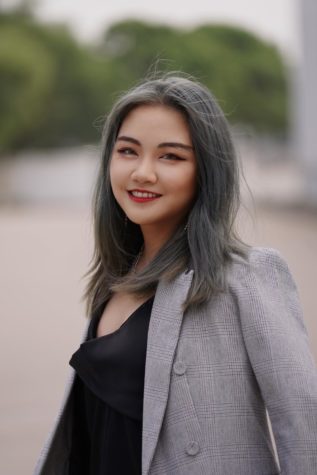In a resolution passed on January 19, College Council (CC) called upon the University to recognize an elected liaison between CC and College policymaking bodies like the Faculty College Council (FCC), which consists of 40 members of the College faculty who have legislative powers over the College’s academic policies. The resolution marked the first time that Student Government (SG) formally pushed for a direct increase of student representation in administrative decision making, according to Class of 2022 Representative Allen Abbott.
The resolution, sponsored by five CC representatives and passed on a 12–3–1 vote, includes two proposals: requiring that administrators notify the Chair of CC “of any proposed changes to academic or campus life policy,” and creating an “Undergraduate Liaison for College Policies” as an ex officio member of the FCC and the Committee of the FCC, which consists of the Dean of the College and seven elected FCC members.
The new liaison would serve a similar role as the Undergraduate and Graduate Liaisons to the Board of Trustees, who regularly meet with the Board to discuss student life issues. Unlike the Board of Trustees, however, FCC oversees the academic policies of the College. The liaison would participate and speak at FCC meetings to provide the group with a student perspective. They would also sit on committees formed to investigate and propose specific policy changes, such as the committee formed in Fall 2019 that reviewed and suggested changes to the academic calendar. The liaison would not have voting power.
In drafting the resolution, CC said that past decisions about policies in the College, including the changing of the Honors System and the academic calendar, did not account for public student comments. The academic calendar committee included two fourth-year students, and the University did not solicit community comments on the proposal despite the committee’s recommendation calling for “a period of public comments and conversations.”
Abbott said that CC approached the Provost’s Office and the College Dean’s Office regarding the calendar changes, and was told that “there are not many additional discussions to be made” since the decision was made by the FCC. Despite a CC resolution and ad-hoc meetings with multiple FCC members, there was no public comment period regarding the Honors System change in Fall 2019.
“There’s been a trend over the past couple of years with us reaching out to the administrators about issues, and they say [that] there has already been a decision made by the faculty governing bodies,” Abbott said.
Abbott and CC Chair Zebeeb Nuguse believed that the need for a formal way for students to engage with the FCC became clear in Fall 2020 when the University refused to adopt an opt-in Pass/Fail policy for classes during the COVID-19 pandemic. Instead, CC contacted individual faculty members and convinced around 30 programs and departments to implement changes on the current departmental Pass/Fail standard. The success of the Pass/Fail initiative encouraged CC to push for more student input in faculty decision-making, according to Abbott.
Since the passage of the resolution within SG, CC has contacted over a dozen FCC members. Abbott said he could not disclose the names of the faculty due to “the sensitive nature of certain decisions and discussions.” However, he said that the members he/they spoke to were receptive to integrating an SG liaison into their decision-making process.
Even though all members CC spoke to agreed that a student liaison would be helpful, they also expressed concern that the proposal gives the liaison too much decision-making power and thus outsized influence on University policies. Abbott clarified that SG does not intend to usurp the FCC’s power. “This is not to say that Student Government will suddenly supersede, or that we are trying to start to make decisions ourselves on matters of academic policy,” he said. “Fundamentally, the University of Chicago is a faculty governing institution. All we're asking for is to ensure that student input is there to inform the decisions of those faculty governing members who make those academic policies.”
Since the proposal called for a non-voting position that focuses on communications between students and faculty governing bodies, Abbott believes that these concerns are largely resolved. “We just want student perspectives to be factored into their analysis and decision-making early on, and that’s where we have seen a lot of agreement about the value of communication and informed decision-making,” he said.
In the long term, CC is pushing for more students to be involved in the University policymaking process, Abbott said. Currently, the University’s primary student advisory group is the Maroon Key Society (MKS); to join, students must maintain a minimum 3.5 GPA, secure a faculty nomination, and be accepted by the administration.
The eligibility requirements “inherently skew representation towards those from elite and normative backgrounds. Marginalized students are thus significantly underrepresented in MKS and excluded from conversations surrounding the policy changes that disproportionately affect them the most,” CC wrote in the resolution.
A liaison between student governments and university administrations has been implemented at other universities. The Academic Life Committee at Harvard’s Undergraduate Council works with the Dean of Undergraduate Education to develop academic policy changes. At Yale, an “Academic Director” from the student college council serves as a liaison to chairs of academic departments and oversees academic policy decisions.
The FCC is expected to hold its next meeting on February 16. Due to the confidentiality of FCC meeting minutes, it is unknown whether this resolution is part of the meeting agenda.









